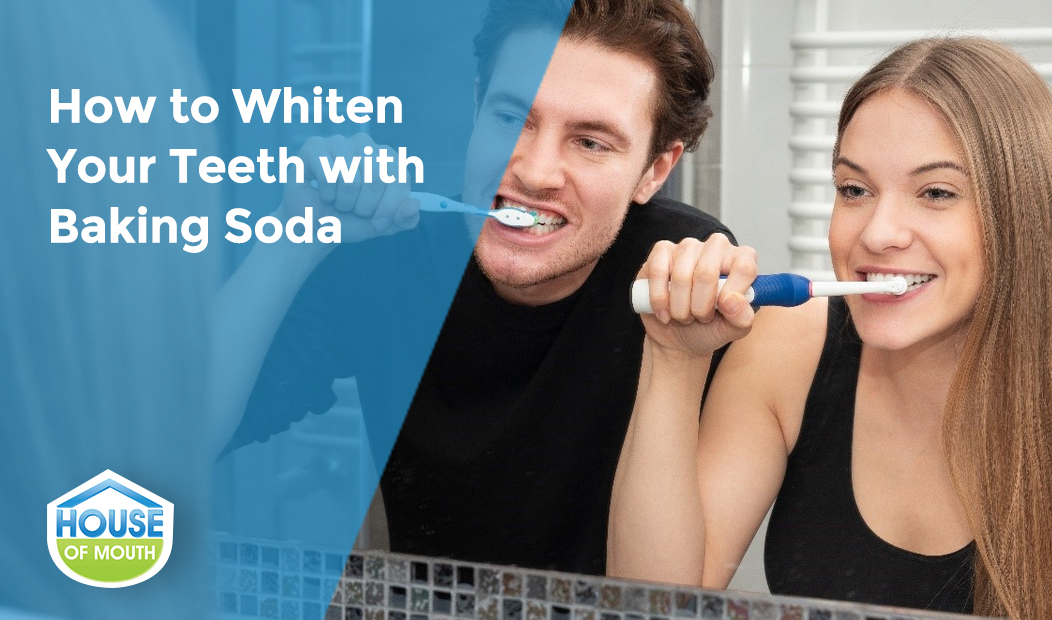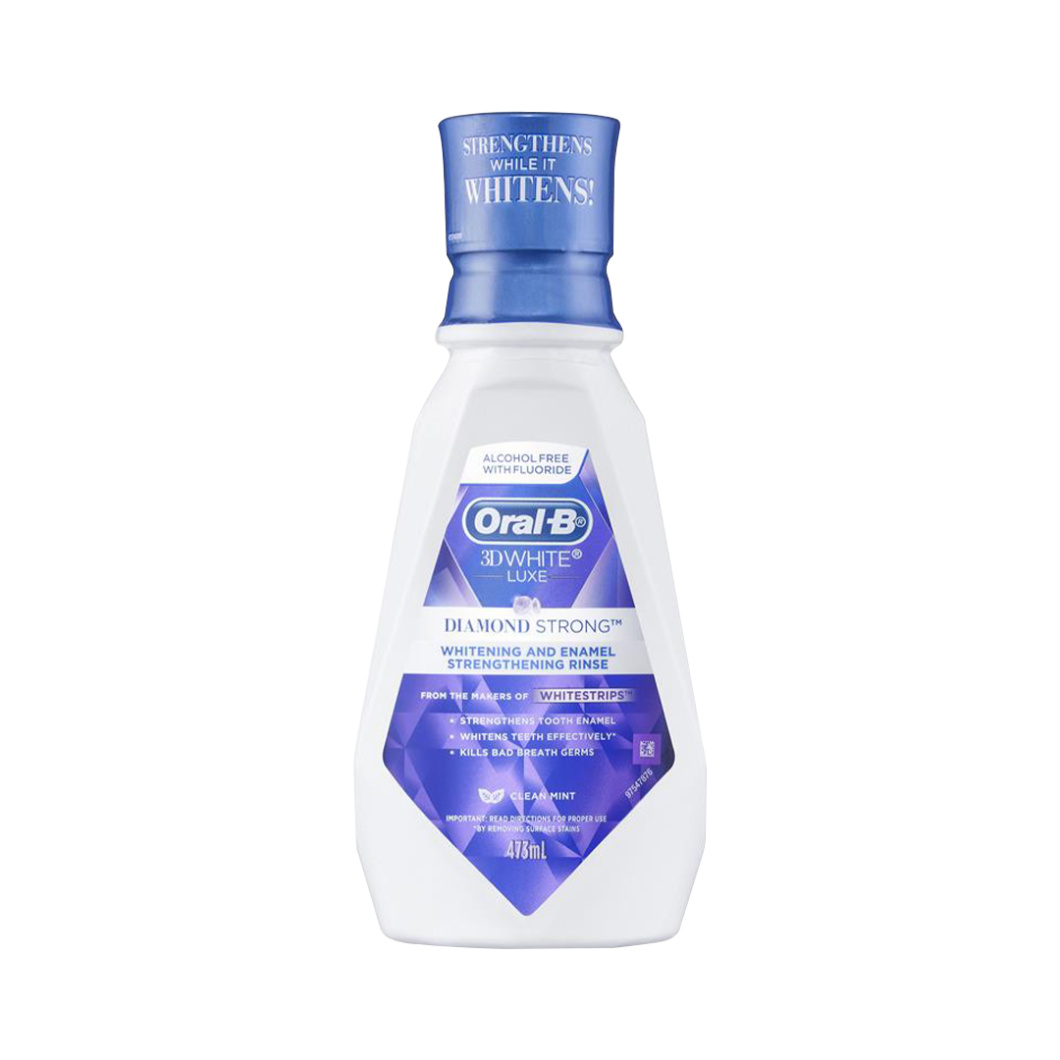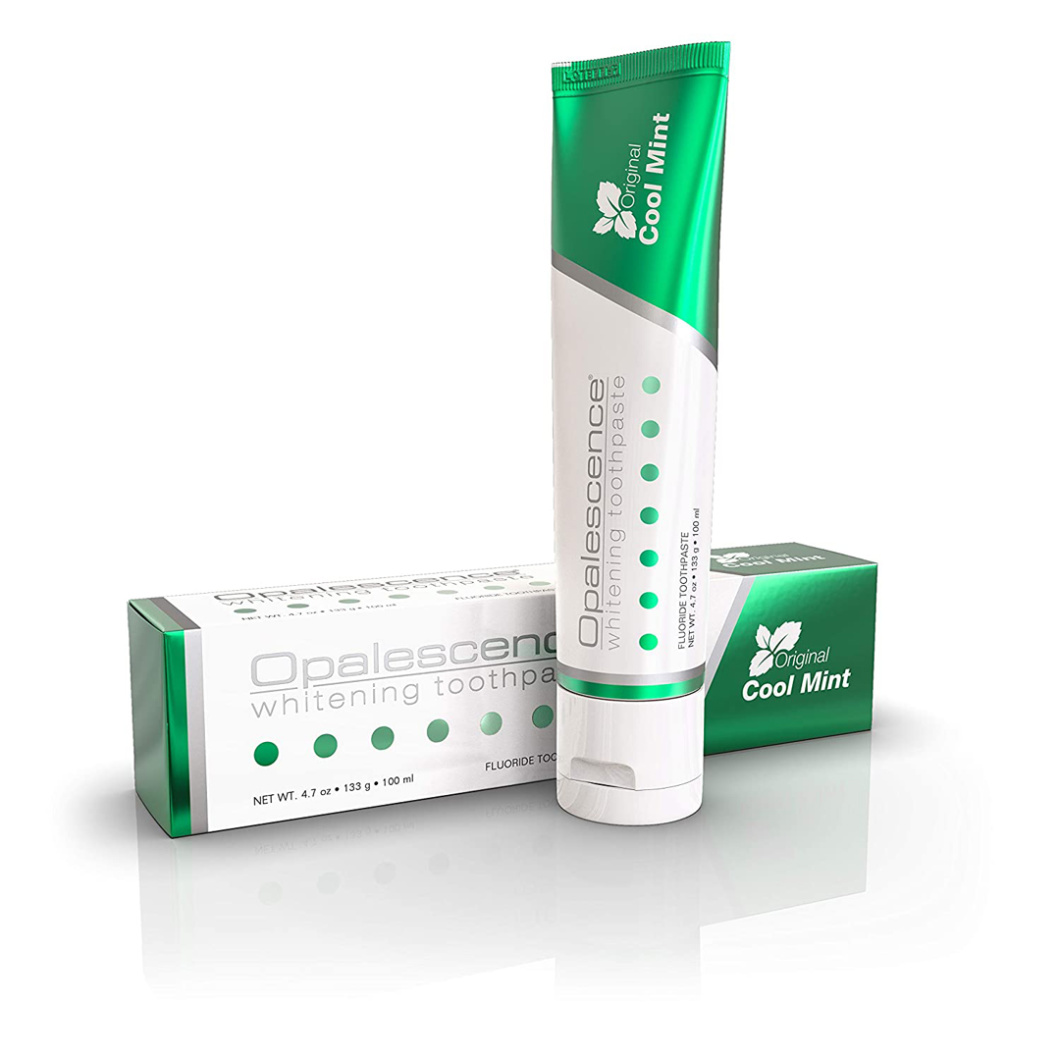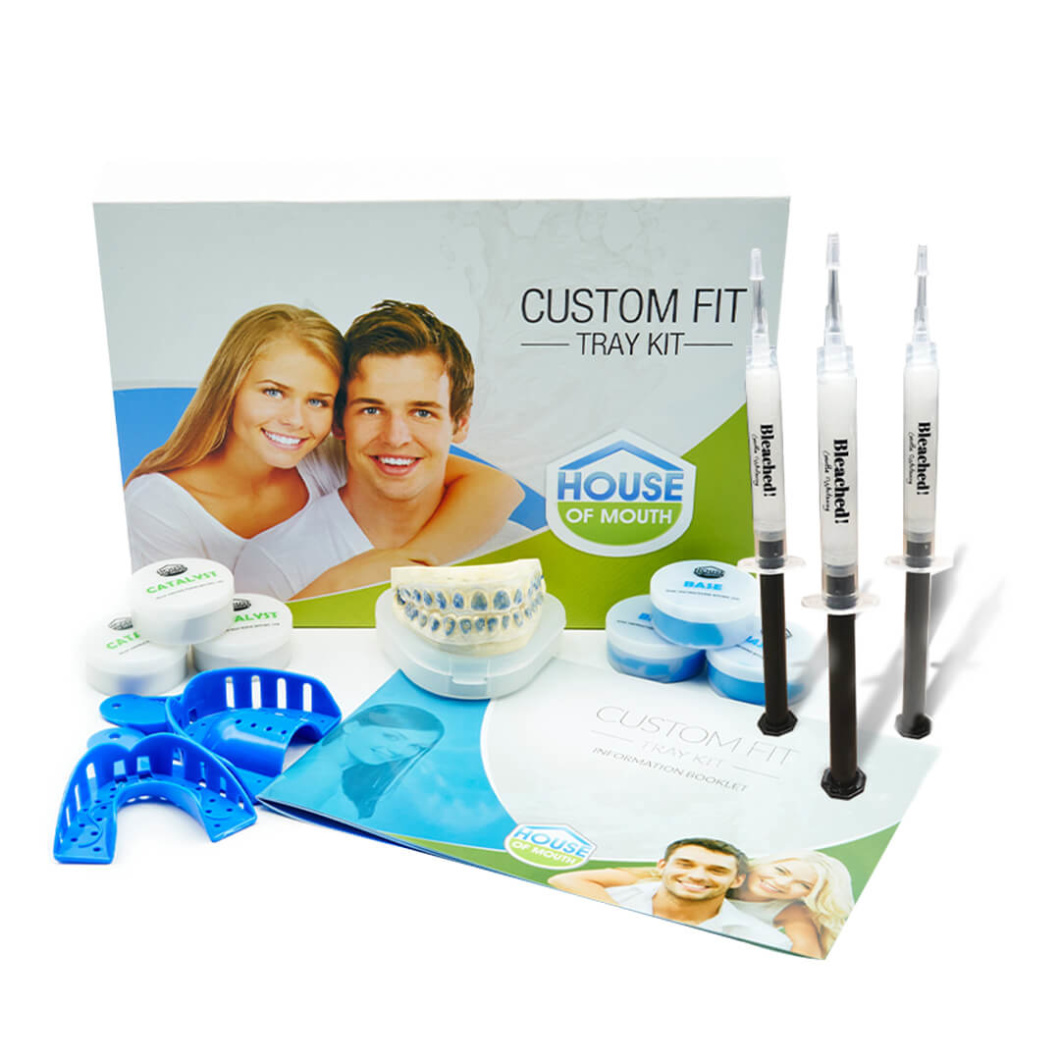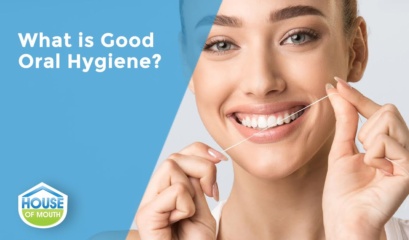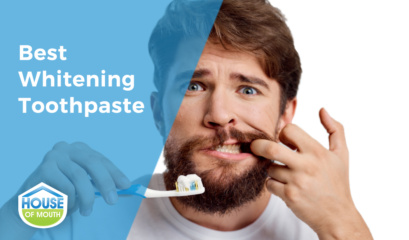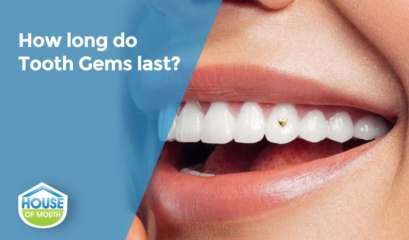Want to learn how to whiten your teeth with baking soda? Read on! We look at the pros and cons and also give you a few professional tips and alternatives.
Trying to find effective teeth-whitening solutions has increased in popularity with natural methods being a focus for certain people. And probably the leader of the natural teeth whitening movement is the use of sodium bicarbonate, more commonly known as baking soda. So, how do you whiten teeth with baking soda, and does it provide real teeth whitening results? We will answer these questions and more! With The House of Mouth, you are able to get a gleaming smile with our teeth whitening products without compromising on oral health. We will discuss the pros and cons of using baking soda as your new natural teeth whitening solution.
Does it Really Work?
Baking soda, or sodium bicarbonate, is a naturally occurring substance that’s been used in households for generations, from baking to cleaning, and yes, even teeth whitening. Its mild abrasive nature acts like a gentle scrub for your teeth, working to remove surface stains caused by everyday culprits like coffee, wine, or tobacco. This characteristic has, over time, solidified its reputation in the teeth-whitening realm. But it’s not just about its abrasive nature. Baking soda also creates an alkaline environment in your mouth, making it harder for bacteria to thrive. Combine these properties, and you have an affordable, easily accessible, and natural solution for those looking to whiten their teeth without breaking the bank.
How to Whiten Teeth with Baking Soda Safely
Whitening teeth with baking soda isn’t just about brushing hard and hoping for the best. Like any oral health regimen, there’s a method to ensure optimal results while prioritising safety. Here are our top 3 tips on how to whiten your teeth safely with baking soda.

1. Preparing the perfect baking soda paste
Before diving in, it’s essential to get the mix right. Begin by mixing a tablespoon of baking soda with a tablespoon of water to form a thick but spreadable paste. You’re aiming for a toothpaste-like consistency, ensuring it’s neither too gritty (too abrasive and can lead to tooth damage) nor too diluted. Remember, the goal is to whiten the teeth safely and not cause enamel erosion. Start with a 1-to-1 ratio and then add more water or baking soda depending on if it’s too thick or thin.

2. Application techniques
With your baking soda paste ready, grab your soft-bristled toothbrush. Apply a generous amount of mixture to the toothbrush and brush gently in a circular motion, focusing on stained areas. Limit your brushing to about two minutes – overdoing it can be counterproductive. You can add a pinch of salt for an added boost, as salt has natural antiseptic properties and is also mildly abrasive. However, if you choose to add salt, exercise caution, as it makes the mixture more abrasive, so it’s essential not to overuse it.

3. Duration and consistency: how fast does baking soda whiten teeth?
Consistency is key. However, due to its abrasive nature, it’s recommended to use the baking soda method only once or twice a week. You might start noticing a difference after a few applications, but remember, everyone’s teeth respond differently. Monitoring your teeth and gums for sensitivity is crucial.
Advantages and Limitations of Baking Soda in Teeth Whitening
Baking soda teeth whitening comes with its share of advocates and critics. Let’s look at the advantages and limitations of using baking soda for teeth whitening.
Pros

Affordability: Baking soda is a household staple, making it a cost-effective whitening solution.

Natural method: For those wary of chemical treatments, baking soda presents a more organic approach.

Multifunctional: Beyond just whitening, baking soda’s alkaline nature helps combat bad breath and reduces the risk of mouth sores, and can help remove tartar.
Cons

Potential irritation: Some users might find baking soda too abrasive, leading to gum or tooth sensitivity.

Not comprehensive: While it tackles surface stains, it might not address deeper discolouration as effectively as custom professional treatments.

Requires patience: Unlike professional whitening products, results are more gradual. As it’s not specifically formulated as a teeth whitening product, you can’t expect a miracle!
Maximising the Effects: Additional Products & Best Practices
While understanding how to whiten teeth with baking soda is valuable, optimal teeth whitening results often come from a combination of natural remedies and professional-grade products. If you’re serious about the benefits of teeth whitening and getting that picture-perfect smile, consider complementing the baking soda method with products specifically designed for teeth whitening. At The House of Mouth, we offer a range of professional-grade teeth whitening and oral care products, handpicked and backed by extensive research. These products not only amplify the whitening effect but also ensure a safer, more holistic approach to oral care. While baking soda can help in whitening, maintaining impeccable oral hygiene provides lasting results. Regular brushing, flossing, and using a good mouthwash can prevent new stains and improve overall oral health. Furthermore, limiting consumption of stain-causing foods and drinks, such as coffee, tea, and red wine, can make a noticeable difference.
-
- Select options This product has multiple variants. The options may be chosen on the product page
-
- Select options This product has multiple variants. The options may be chosen on the product page
-
- Select options This product has multiple variants. The options may be chosen on the product page
FAQs
How often should I use baking soda to whiten my teeth?
For safe and effective results, it’s recommended to use baking soda for teeth whitening once or twice a week. Overuse might lead to enamel erosion or gum sensitivity.
Is baking soda safe for all types of teeth?
Generally, baking soda is safe for most teeth. However, if you have veneers, crowns, or braces, consult with a dental professional before using baking soda as a whitening method.
Does baking soda have any side effects on oral health?
When used appropriately, baking soda is generally safe, however, overuse can lead to enamel wear and gum sensitivity. Always monitor your mouth for any signs of irritation and contact our team at House of Mouth if unsure.
Why is baking soda considered a natural teeth-whitening agent?
Baking soda is a naturally occurring substance. Its mild abrasive nature helps remove surface stains from teeth, making it an effective, natural teeth-whitening agent.
Are there any teeth stains that baking soda cannot remove?
While baking soda is effective for surface stains, it might not be as effective for deeper, intrinsic stains. Professional treatments or products might be needed for such discolourations.


